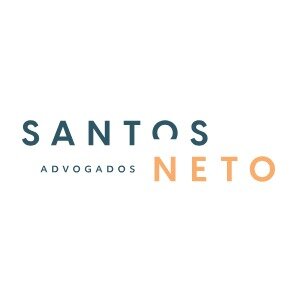Best Mining Law Lawyers in São Paulo
Share your needs with us, get contacted by law firms.
Free. Takes 2 min.
List of the best lawyers in São Paulo, Brazil
About Mining Law in São Paulo, Brazil
Mining Law in São Paulo, Brazil, is a specialized discipline that governs the exploration, extraction, and commercial use of mineral resources within the state and under Brazilian federal law. The legal framework for mining is based on federal legislation, especially the Brazilian Mining Code, but it is also influenced by state regulations and requirements relating to environmental licensing, land use, and tax obligations. São Paulo, while not as mineral-rich as some other Brazilian states, maintains significant mining activities related to construction materials, aggregates, sand, limestone, and industrial minerals. As a result, Mining Law in the region balances private mining interests, environmental protection, local community rights, and public welfare.
Why You May Need a Lawyer
There are several situations in which individuals or companies might need a lawyer specializing in Mining Law in São Paulo. Common scenarios include:
- Obtaining mining or exploration permits and licenses
- Navigating environmental regulations and obtaining environmental licenses
- Negotiating land access or acquisition agreements with landowners
- Addressing conflicts with local communities or governmental agencies
- Drafting, reviewing, or enforcing contracts related to mining activities
- Dealing with allegations of illegal mining or environmental impacts
- Handling royalty, taxation, and regulatory compliance matters
- Engaging in litigation related to mining rights, boundaries, or environmental damage
- Developing risk assessments and due diligence for potential mining investments
Given the complexity of Mining Law and the number of regulatory agencies involved, legal guidance is often essential to ensure compliance and to protect your rights and interests.
Local Laws Overview
Mining activities in São Paulo are mainly governed by national legislation, most notably the Código de Mineração (Mining Code) and regulations from federal bodies such as the Agência Nacional de Mineração (ANM - National Mining Agency). At the state level, specific laws and decrees address environmental controls, land use, and administration of natural resources. Key points include:
- All mineral resources are the property of the federal government, but rights can be acquired through government-issued titles or concessions
- Exploration and mining depend on separate authorizations or concessions, each requiring compliance with detailed legal and technical requirements
- All mining projects must have environmental licenses issued by relevant authorities, with rigorous procedures and public consultation in some cases
- Local municipalities may also regulate land use and impose additional environmental requirements
- Mining companies are required to pay royalties, known as CFEM (Compensação Financeira pela Exploração de Recursos Minerais), calculated as a percentage of sales
- Strict legal provisions address worker health and safety, reclamation, and mitigation of environmental impacts
- Non-compliance can result in administrative penalties, fines, or suspension of mining rights
Given the multi-layered regulatory structure, navigating Mining Law in São Paulo often involves compliance with both federal and state laws.
Frequently Asked Questions
What authorizations do I need to start mining in São Paulo?
You need an exploration authorization or a mining concession from the National Mining Agency, and must also obtain environmental licenses from state or municipal agencies before starting any mining activity.
Who owns mineral resources in Brazil?
All mineral resources belong to the federal government. Private individuals or companies can obtain rights to research or exploit minerals through legal processes.
Are environmental licenses mandatory for mining?
Yes, environmental licenses are required for all mining activities. These are regulated at the federal, state, and sometimes municipal levels, depending on the project's type and scope.
What are the penalties for illegal mining?
Penalties include administrative fines, suspension of activities, cancellation of mining titles, and possible criminal charges in cases of environmental damage or illegal extraction.
How are mining royalties (CFEM) calculated?
Royalties are calculated as a percentage of the gross revenue from the sale of minerals, with rates varying according to the type of mineral extracted.
Can foreign companies invest in mining in São Paulo?
Yes, foreign companies can acquire mining rights and invest in mining operations, but they must comply with Brazilian legal and regulatory requirements.
How do I resolve a dispute with landowners regarding mining rights?
Disputes can often be resolved through negotiation and legal agreements. Legal assistance is advisable to ensure compliance with land use, compensation, and other relevant regulations.
What is the role of the National Mining Agency (ANM)?
The ANM regulates, oversees, and monitors mining activities, issues permits and mining titles, and enforces compliance with federal Mining Law across Brazil, including São Paulo.
Are there special rules for small-scale or artisanal mining?
Yes, there are specific rules and simplified procedures for small-scale and artisanal mining, but these still require permits and must meet environmental and safety standards.
What should I do if my mining project is denied environmental approval?
You may appeal the decision, address the identified issues, and resubmit your application. Legal advice can assist in preparing documents and representing your interests during the process.
Additional Resources
For further information and assistance with Mining Law in São Paulo, the following resources can be useful:
- Agência Nacional de Mineração (ANM)
- Secretaria do Meio Ambiente do Estado de São Paulo (São Paulo State Department of the Environment)
- Instituto Brasileiro do Meio Ambiente e dos Recursos Naturais Renováveis (IBAMA)
- Local municipal environmental agencies
- Trade associations such as the Sindicato da Indústria de Mineração de Pedra Britada do Estado de São Paulo (Sindipedras)
- Legal aid societies and bar association for referrals to specialized Mining Law attorneys
Next Steps
If you require legal assistance regarding Mining Law in São Paulo, consider taking the following steps:
- Gather all relevant documents related to your mining activities, such as permits, licenses, maps, and contracts
- Identify the specific issue or question you need help with
- Contact a licensed lawyer or law firm with experience in Mining Law in São Paulo
- Schedule an initial consultation to discuss your situation and legal options
- Consider reaching out to government agencies for guidance concerning regulatory or permit requirements
- Stay informed about updates to Mining Law and practice ongoing compliance with legal and environmental obligations
Legal support can help you navigate the complexities of Mining Law, minimize risks, and ensure the success and legality of your mining project in São Paulo.
Lawzana helps you find the best lawyers and law firms in São Paulo through a curated and pre-screened list of qualified legal professionals. Our platform offers rankings and detailed profiles of attorneys and law firms, allowing you to compare based on practice areas, including Mining Law, experience, and client feedback.
Each profile includes a description of the firm's areas of practice, client reviews, team members and partners, year of establishment, spoken languages, office locations, contact information, social media presence, and any published articles or resources. Most firms on our platform speak English and are experienced in both local and international legal matters.
Get a quote from top-rated law firms in São Paulo, Brazil — quickly, securely, and without unnecessary hassle.
Disclaimer:
The information provided on this page is for general informational purposes only and does not constitute legal advice. While we strive to ensure the accuracy and relevance of the content, legal information may change over time, and interpretations of the law can vary. You should always consult with a qualified legal professional for advice specific to your situation.
We disclaim all liability for actions taken or not taken based on the content of this page. If you believe any information is incorrect or outdated, please contact us, and we will review and update it where appropriate.

















